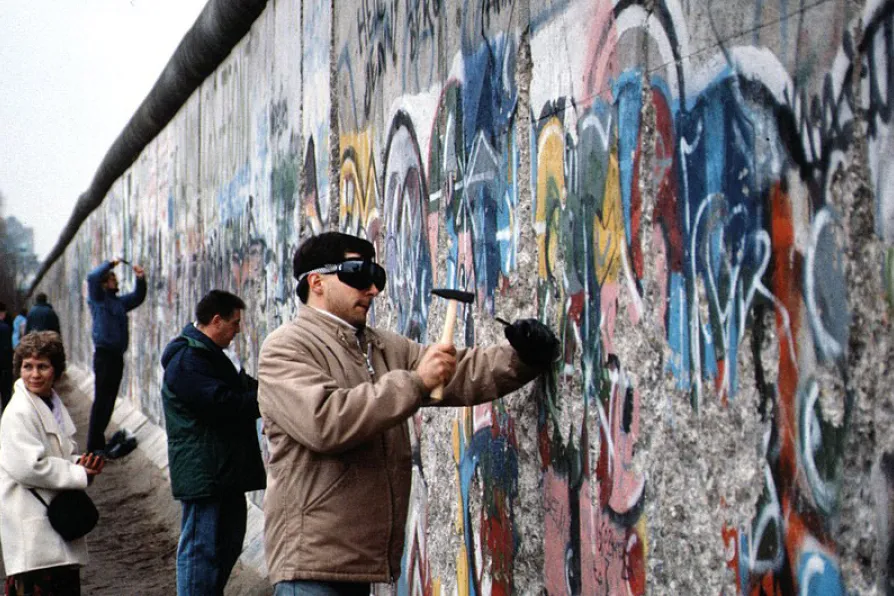As tens of thousands return to the streets for the first national Palestine march of 2026, this movement refuses to be sidelined or silenced, says PETER LEARY

 LETTING THE RIGHT IN: Men chip away at the defunct Berlin wall, 1989
LETTING THE RIGHT IN: Men chip away at the defunct Berlin wall, 1989
ON November 9, 1989, the German Democratic Republic (GDR) relinquished its border security to the Federal Republic of Germany (FRG). While the world watched images of euphoric citizens pouring into West Berlin, the political reality of the moment was far more sobering: the opening of the border sealed the future of socialism in Germany. What followed was annexation, accompanied by economic liquidation, mass unemployment and the subjugation of the entire GDR population under a new order.
The FRG, designed as a front-line state against socialism, had long incorporated far-right elements into its institutions. In this context, the Berlin Wall was not just a border, but also a protective barrier against fascism.
After 1989, neofascist groups rapidly expanded into East Germany, reinforcing the argument that the wall had served as a defence against reactionary forces. Even figures like John F Kennedy understood that without the wall, conflict was inevitable. The same claim was later supported by Heinz Kessler and Fritz Streletz, who presented extensive evidence on the subject in their book Without the Wall, There Would Have Been War.

NICK WRIGHT returns to Berlin and finds a city in darkness and political turmoil

The decision highlights the tension between freedom of expression and the state’s role in shaping historical memory at former concentration camps, reports LEON WYSTRYCHOWSKI

JOHN GREEN observes how Berlin’s transformation from socialist aspiration to imperial nostalgia mirrors Germany’s dangerous trajectory under Chancellor Merz — a BlackRock millionaire and anti-communist preparing for a new war with Russia











